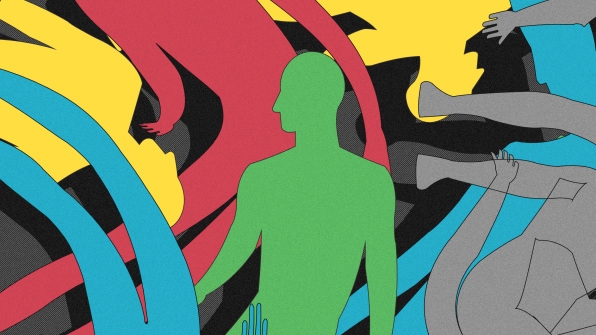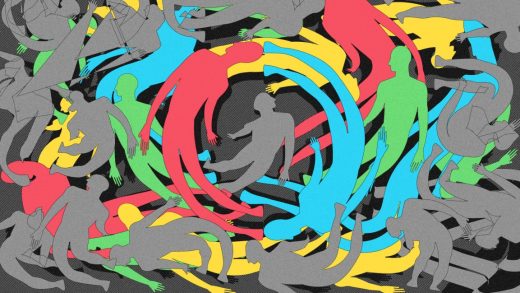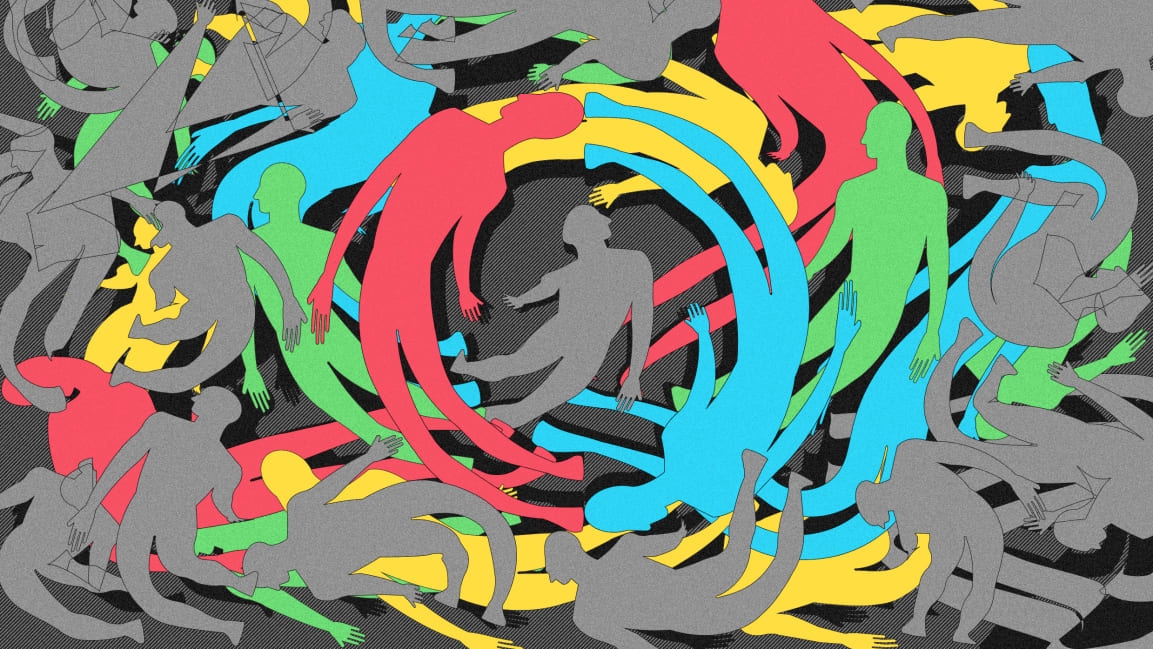These disease investigation specialists usually track down STDs. Now they’re doing COVID-19 contact tracing
While it’s never been especially visible, the importance of “contact tracing” to curb the spread of disease is not new to the COVID-19 pandemic. As tech companies develop contact tracing apps that draw skepticism and raise privacy concerns, one organization is deploying its employees to carry out this important public health work with a shoe-leather approach, just as they’ve been doing for decades to stem the spread of a different kind of health concern: STDs.
Disease intervention specialists—sometimes called disease investigation specialists, often shortened to DIS—have long been on the front lines of STD prevention and care in the U.S., and now they’re on the front lines of the coronavirus crisis. “These are the boots-on-the-ground public health workforce that investigate disease outbreaks, and they are mostly supported through STD dollars,” says David Harvey, executive director of the National Coalition of STD Directors, a public health organization with a membership of state and local health programs that employ DIS.
The coalition works closely with the CDC, and though DIS focus on sexually transmitted diseases, its investigators can be deployed for everything from food-borne illness outbreaks to ebola, and so they often interact with epidemic intelligence service officers, so-called “disease detectives.” The roles are a bit different, though, Harvey says. “There is a lot of overlap, but technically speaking DIS are very much of the community that they serve. It’s a workforce that is majority African American and Latino. They are folks that literally go out door to door, community to community, interviewing people, building relationships, building trust.”

In some cases, DIS help people get tested right in the field. In others, they work to navigate people through the healthcare system, which can be difficult for black and Latino Americans who face challenges regarding medical access. These health workers are trained to confidentially report data and keep track of the number of cases for a disease. But “their singular goal,” Harvey says, “is to do contact tracing in order to break the chain of infection.”
Contact tracing is crucial to controlling the spread of COVID-19, a way to inform those who may have been exposed and to learn about those who have tested positive, and what their behaviors have been. Since the start of the pandemic, Harvey says the coalition is entirely pivoted to COVID-19 work, with the approximately 2,000 DIS workers across the country now focusing their contact tracing skills on the coronavirus. That means educating people about the disease, being embedded in a community to learn how the disease is spreading, warning people about possible exposure to prevent that spread, giving guidelines and recommendations around isolation and quarantine, and ensuring people can navigate the healthcare system if infected.
Since they already have relationships with black and Latino communities, DIS are uniquely positioned to help these populations that are also especially vulnerable to COVID-19. These communities tend to distrust the public health system (“often for very good reason,” Harvey says); they also tend to have higher rates of STDs, and are generally more at risk for all health disparities, including COVID-19.
The coalition has also been educating Congress about the needs of this crucial public health system, including at least $200 million toward the STD program at the CDC in order to support DIS in doing COVID-related work. The coalition is also pushing for $500 million to support STD clinics, so they can implement and ramp up COVID-19 testing. “STD clinics in the United States are a safety net provider. People come to these programs because they are often free and anonymous,” Harvey says. “So this is a system we know that can reach vulnerable Americans.”
At the same time, this shift in focus poses a risk for STD health care in the country. “Our field is no stranger to out of control epidemics, but now what has happened is that STD prevention and care have come to a screeching halt as people are in the process of being redeployed and focusing on COVID,” Harvey says. Social distancing and fewer resources—not to mention the fact that STD healthcare is an “already underfunded system,” per Harvey—creates a dilemma for how to treat STDs, which often require in-person treatments. “The STD system in America already doesn’t have the resources that it needs, and now we are attempting to play a really important, central role in COVID,” he says. “It means that we are seeing huge cracks in the system.”
Reassigning DIS workers to coronavirus contact tracing is a way to help the current pandemic come to a close more quickly, which could then also get that regular STD care back on track. But the National Coalition of STD Directors is going to need more support—both now, and for after the crisis, including new hires, adequate training for those new hires, and continued funding. “There’s going to be a lot that doesn’t happen in STD prevention and care as we respond to the more emergency situation of COVID, and so when this is over, we have a lot of pieces to pick up, and we’re going to need more resources to do it,” Harvey says.
Still, taking advantage of the DIS workforce in this pandemic is crucial to coronavirus recovery. Harvey says that the coalition isn’t completely opposed to the efforts by tech companies to create contact tracing apps that use geo-positioning data, “but it is important for the American public to understand that no app is going to be able to do the entire job here.” Those vulnerable populations, the ones contact tracing needs to reach most, may not have the latest smartphones or may not opt in to such systems anyway. Plus, apps don’t allow for the human-to-human interaction DIS excels at, which helps those specialists learn about what is really going on with infections in a local community.
“We are not the shiny new object,” Harvey says. “We are the tried and true boots-on-the-ground public health system that has worked in this country for over 40 years. And it’s so frustrating to see this conversation dominated by tech companies that are worth billions of dollars. I’d like to see the tech companies ante up to social responsibility here and support this existing public health system by supporting this workforce.”
(31)



